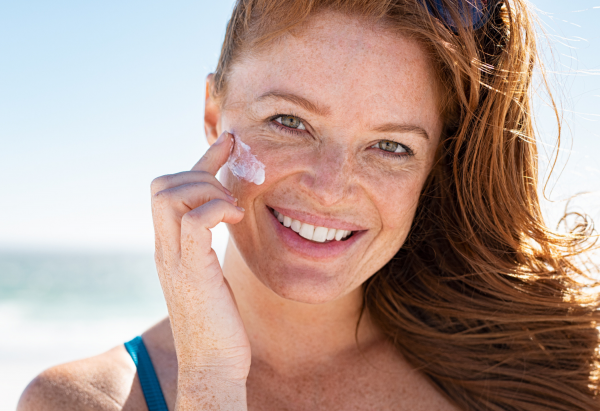
It is very important to apply good sunscreen and to protect yourself from the sun. And of course you want to do that well. It is better to avoid these sunscreen mistakes.
One of the most common mistakes when it comes to sunscreen is not using enough product to cover yourself with. In fact, research shows that most people only use a quarter of the sunscreen they need to put on themselves. And that automatically means that you are less well protected against the sun. Therefore, always try to use a handful for your body and a dot the size of a 2 euro coin for your face.
Any sunscreen must be reapplied. Whether you use factor 15 or factor 50 and whether your sunscreen is water resistant or not, any sunburn will go away after about two hours in the sun. And often even faster if you spend a lot of time in the water or sweat (a lot). It is also important to remember that you should not only reapply when you are on the beach. If you sit next to a window or in the car, you are exposed to UV radiation through the glass. So always keep applying!
It is of course good that you think about the factor with which you apply, but there is also a difference in what kind of radiation exactly stops your sunburn. Some products protect you against both UVB rays and UVA rays, while there are also products that only work against one of the two. For example, think of day creams or make-up with an SPF factor. Therefore, make sure that your solar product is resistant to both types of radiation!
There are of course many different types of sunscreen, namely creams, sprays, sticks and even wipes. The common variant is the cream, on which most theories about how (often) you should apply. But when you use a spray, for example, you will have to take into account that you may need more product to protect yourself well. The goal is to put a layer of sunscreen all over your body. With a spray, there is a good chance that you will have to go over a spot twice to create this effect, so keep that in mind.
Most sun care products recommend that you apply about 30 minutes before going out into the sun, because that is how long the ingredients need to be activated and to block UV radiation. But be honest, do you always wait half an hour after applying the sunscreen before you sit in the sun? During that activation period you are therefore vulnerable to the radiation, so don't forget that before you dive into the sun.
If you have darker skin, you can often wear a sunscreen with a lower factor because your skin produces more melanin, so you burn less quickly. However, that does not mean that you cannot suffer skin damage from the UV radiation to which you are exposed. In fact, because you burn less quickly, you are less likely to notice that your skin is damaged. Also, skin cancer, which can be caused by being exposed to the sun unprotected for too long, is less likely to be recognized on darker skin. In short:even if you are darker yourself, it is important to protect yourself well against the sun, even (or perhaps especially) if you do not burn easily.
Most of us are very careful when applying facial rubs, but we often forget about other important places. For example, think of your lips, your ears and the back of your neck. These areas, which are often forgotten, are therefore areas where troubled cells often arise. Another place where these often occur are the backs of your legs, as they are harder to see and more difficult to reach. So make sure you are really careful with rubbing!
Many people think when they are burned:“that will go away”. But unprotected sunbathing can lead to problems that are more serious than you might think. Melanoma – a form of skin cancer – can, once it has arisen, also spread to your organs, making it still life-threatening. That is why dermatologists also recommend having your skin checked every year and keeping a close eye on your moles. If you see anything suspicious, don't wait for your check-up, but contact your doctor to be sure.
Of course, sunscreen is an important factor in your protection from the sun, but it is not the only one… It is wise to avoid long and intensive sun exposure and to wear clothes and accessories that help to block the sun's rays. Darker fabrics with a high fabric density and a tight fit offer the most protection against UV radiation.
When was the last time you replaced your sunscreen? If all goes well, your bottle of sunscreen should also have an expiration date. Can't find it? Then keep as a rule of thumb that sunscreen lasts about three years. When you keep a bottle especially for your holidays, you may suddenly find yourself using an old bottle that has lost its protective factor in the meantime. So keep that in mind!
Read also:we most often forget to apply sunscreen to these spots